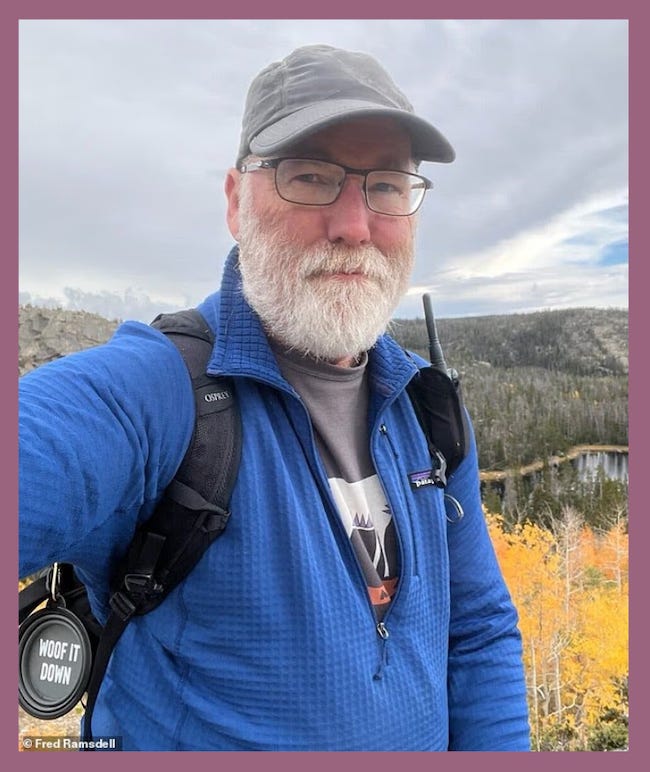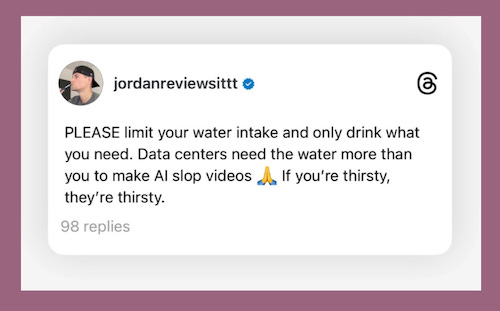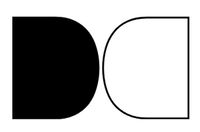Making "AI Slop" isn't the problem - our constant consumption of it is
Throwing stuff at the wall is a natural part of the creative process; but in our endless scrolls, we're missing one crucial step for our own Creative Health.
CreativeRx is our weekly newsletter with a simple purpose: To expand the surface area of our Creative Brains. Every Sunday, we dissect one idea from a scientific POV - and then share the exact, high-quality creative inputs you can mull on all week.
Craving the ability to take your Creative Health even further? Join our Deep Dives community for research-backed pieces on the science of creativity. Our next one is dropping this Thursday 🤓
HOT TAKE: NOT ALL “AI SLOP” IS BAD.
This week, it feels like everyone is talking about (raging about) the idea of AI slop. But, as a Creative Health Scientist - I’m here to tell you: It’s not all that bad.
TLDR; “AI slop” is a term someone made up to describe the “low quality” content that’s either created - or heavily assisted - by AI. Think: Creepy Sora videos, whatever’s happening on Facebook Vibes, the videos of bunnys-or-whatever jumping on trampolines.
Once the weird, awkward laughter fades, the unease sets in. I think most of us are freaking out because it seems like one more nail in the increasingly crowded coffin of human creativity. If these technological tools are getting easier and easier to use, what does that say about our future?
Even more - if we’re all just consuming boring, repetitive, unoriginal content, where does our real creativity go?
Let me assure you: From a scientific perspective, we’re right on time. With every new introduction of a creative tool, whether it’s the printing press or ChatGPT, we go through a collective creative reset - back to Phase 1 of the creative process: Experimentation.
Psychologist Graham Wallas, one of the first scientists to map the creative process, called this the preparation stage. It’s where we break, bend, and blend what already exists to make something new. We play. We throw stuff at the wall to see what sticks.
Messiness and chaos are inherent to the process.
So, the creation of “AI slop” isn’t the problem. In my view, we shouldn’t be afraid of the mess. Instead, we should worrying about the speed of consumption.
That’s because, the second phase of the creative process is something called Incubation. It’s where our creative ideas - the messy preparation - has room to germinate.
And with a continuous, overwhelming speed of information we’ve completely lost that space. To me, the pace of “AI slop” is far more worrisome than the content itself.
What drains the humanity from creativity isn’t the use of tools; it’s skipping over the necessary integration. If creativity had a secret ingredient, it would be time. We - quite literally - need room around the edges for our brains to ingest inputs and combine them in a new, unique and original way.
So next time you find yourself in the 99% of us who are content consumers instead of creators this week - pause and ask yourself: Is this actually feeding my creative brain?
If not, move on. And, that next right action might just look completely human - like staring out the window to let your creativity incubate.
From my brain to yours,
Katina, Creative Health Scientist & Daydreamers’ Co-founder + Chief Science Officer
OUR NEXT DEEP DIVE: THE SCIENCE BEHIND CREATIVE INCUBATION 🧠
WHAT: Have you always been mystified by the creative idea that suddenly pops into your head - only to, erk, never be able to replicate it again? Scientifically, we actually know exactly how to generate creative breakthroughs; the problem is - our world deprioritizes one of the most important steps: Germination. Together, we’ll explore the neuroscience behind creative ideation - and why all of us need to start prioritizing Incubation Time in an overwhelming, overloaded world.
WHEN: Deep Dives are moving to new space more conducive for creative thinking - Thursday afternoons. We’re all for experimenting and trying new things, so respond/comment and tell us when you most enjoy reading long-form pieces!
ON THE KIND OF INTERNET [AND WORLD] I WANT TO LIVE IN 🌏
Here’s a glimpse of what the next era of our “consumption” could look like - if we’re paying attention. It feels like the opposite of AI slop: using our creativity in the real world to activate awe, wonder and appreciation.
→Check out the Earth project here [+ read our take on the neuroscience of beauty]
ON WHAT ALGOSPEAK IS DOING TO OUR CREATIVE BRAINS:
“Humans are always a step ahead - because what these algorithms have is a map of language, not the territory of language.” Adam Aleksic, linguist + “Etymology Nerd”
This conversation, alongside Adam’s book, is a fascinating window into how memes, slang, and “brain rot” actually reflects…our deep need for human connection.
→ Watch the full interview with Scientific American here:
WHAT WE CAN LEARN FROM NOBEL PRIZE WINNERS 🥹

Tell me why I went down the best kind of rabbit hole this week - watching the moment that someone found out they were awarded a Nobel Prize - and was overcome with emotion each time.
After the fifth video (😅), I noticed an interesting trend: Not only do these folks represent the clearest form of Autotelic Living (why were every single one of them completely shocked?!) - but most of them weren’t reachable by phone.
In a world where the majority of us can’t go more than 30 seconds without checking our devices, these people - some of the most brilliant in the world! - couldn’t be contacted. As we think about the essential aspects of the creative process over the next few weeks together (importantly, germination, reflection and incubation), these Big C Creators demonstrate just how important it is to regularly let your creative brain consolidate, rejuvenate, and wander “without a purpose.”
There’s so much more to explore here, but for now let yourself be in awe of folks who are quite literally changing the world - and upholding so many foundations of what it looks like to be Creatively Healthy - in a time that values constant, endless output.
REACH 15K+ CREATIVES, THINKERS AND LEADERS
If you’re building tools and ideas that help our community think more expansively, create more freely, and live more intentionally, and you’re interested in advertising with us, send an email over to ddhq@daydreamers.co with the subject “CreativeRx”
This newsletter today is brought to you by Daydreamers: The first + only platform that turns your creativity into a consistent, science-backed habit. Creativity isn’t a luxury; it’s for all of us. And, it’s never been more important for everyone to exercise it.






